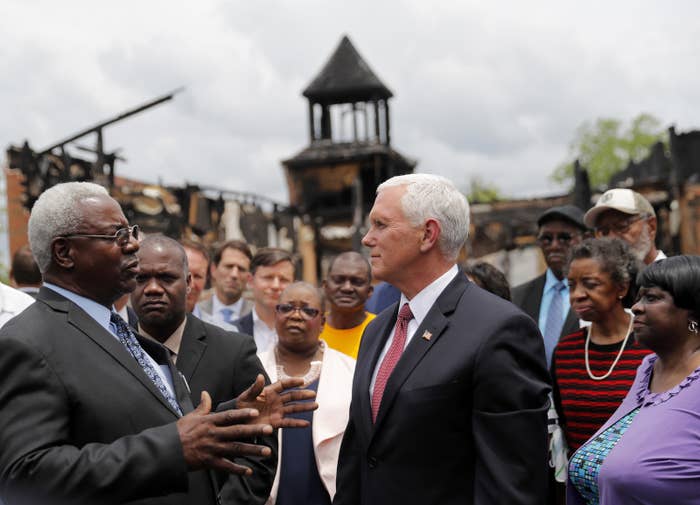
When I was growing up, people were always telling me to pay attention. They told me to pay attention in class, pay attention in church, pay attention at the dinner table. They told me to pay attention to the things that were going on around me because, if I didn’t, I was going to miss something important.
It didn’t help. I tried, but my mind tended to wander as I dreamt of what it would be like to be somewhere, anywhere, else. I’m probably not unique in that. I imagine the same holds true for most kids growing up in rural South Carolina.
But if I had been paying closer attention, maybe I would have asked my grandmother, the late Mary Butler, about her grandfather, Rev. Moses Butler. Maybe I would have learned how he spent his life working other men’s fields and preaching God’s word, but still found a way to buy a plot of land about 15 minutes from South Carolina State University and then donate it so a community of southern black sharecroppers could have something of their own: a church, which they named after him, Butler Chapel AME.
Maybe I would have learned how, shortly after it was built, it was burned down, right around the time when that sort of thing was becoming popular with men who wore white hoods.
And maybe, if I had been paying closer attention, I would have made the connections between then and the next time Butler Chapel was burned. It was roughly 60 years later, in the spring of 1996, and it burned along with nearly 40 other churches across the South.
I wasn’t listening then. But I was later, and I remember how my grandmother and her friends would talk about the separate bathrooms and water fountains, having to enter a building from a side alley, and all the other times they were treated like second-class citizens. They told me about not being let into a neighborhood pool when it was so hot outside the sun-baked ground would burn your feet.
And I remember them saying how they didn’t dare say anything, because, if you did, things could get bad. People would show their teeth and say, “Why don’t you go back where you belong?” or “We know how to take care of your kind.” That was if you were lucky.
We should be past that sort of thing. We should be, but we’re not.
Just ask the folks who pray among the ashes that used to be St. Mary Baptist Church, Greater Union Baptist, or Mount Pleasant Baptist in Louisiana’s St. Landry Parish. Look at the mugshot of the 21-year-old who set the fires and wonder why the fact that he’s the son of a sheriff’s deputy isn’t ringing like an alarm in our collective conscience, blaring “PAY ATTENTION!”
But the alarms aren’t sounding, and, just like during the early days of the civil rights movement, we’re not talking about the attacks. We turn away, unwilling to look at God’s house reduced to a burned-out husk. We’re not even willing to call this evil by its true name: domestic terrorism.
Maybe there’s a big step between “send her back” and the world my grandmother remembered. But maybe that step isn’t so big after all, because that kind rhetoric and vitriol cuts deeply, and if you don’t have the lens of history to see it through, you’ll never understand. That kind of hate leaves scars, and those scars last for generations.
I shouldn’t have to tell you that hate crimes are on the rise, with a 17% increase over the last year alone, and a more that 30% increase since 2014.
I shouldn’t have to tell you that a joint briefing of the Department of Homeland Security and the FBI in May 2017 identified white supremacist extremists as responsible for more homicides and attacks than any other domestic group, and that, only a few months later, FBI Director Christopher Wray said homegrown violent extremists are the “primary terrorist threat to the homeland today.”
These are the lumps under our American carpet, all the racism and bigotry we’ve been sweeping out of sight for years and chalking it up to “a few rotten apples.” All that time, we’ve been ignoring a system that sends 1 in every 3 black men to prison, and has a wage gap between blacks and whites that’s as wide today as it was in the 1950s.
I shouldn’t have to tell you about people coming from behind their keyboards and touchscreens to put their bigotry on public display claiming they’re just “telling it like it is” — just like the president does. I shouldn’t have to tell you that the man who burned down those Louisiana churches is a terrorist, or that the Charlottesville killer is a terrorist, or that the men who massacred black churchgoers in Charleston or Jewish people at prayer in Pittsburgh and Poway are terrorists.
I shouldn’t have to tell you any of this, but I am. Because when you don’t learn from history, you repeat it — and my parents don’t deserve to have to live through that again. My community shouldn’t have to shed those same tears again, and none of us should have to watch our nation tear itself apart fighting battles that should have been won generations ago.
This isn’t who we are, and it isn’t who we should be. But if we’re not paying attention, if we let ourselves be ruled by the lesser angels of our nature, then that’s who we will become.
Antjuan Seawright is a Democratic political strategist and the founder and CEO of Blueprint Strategy.
